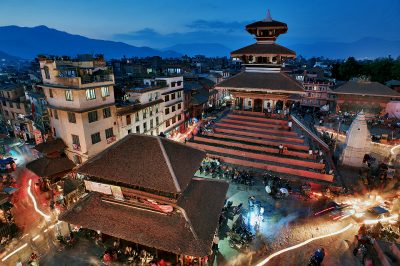 Nepal lawmakers have come up with a new piece of legislation that enables the country’s government to seize the personal property and assets of casino operators who have failed to fulfill their tax obligations. The legislation, which is still in its draft form, is planned as a part of the government’s new Federal Tourism Bill.
Nepal lawmakers have come up with a new piece of legislation that enables the country’s government to seize the personal property and assets of casino operators who have failed to fulfill their tax obligations. The legislation, which is still in its draft form, is planned as a part of the government’s new Federal Tourism Bill.
The information was disclosed by an anonymous official working for Nepal’s Ministry of Culture, Tourism and Civil Aviation (MoCTCA), who revealed a provision in the new bill is to enable the government to take possession of the assets of faulty operators even if they have escaped the country.
Efforts to enforce adequate regulations and keep violators in check were first made in 2013, when it was discovered tax defaulting was an established practice among gambling operators. Many landbased casinos in Nepal also failed to comply with the regulations that prohibited them from welcoming locals on their premises.
In the spring of the following year, the Nepalese government determined it was best to close down wayward gambling establishments and revoke their licenses so that they can no longer operate in violation with the frameworks outlined in Casino Regulation 2013.
Many operators thought the requirements unfeasible and took the issue to the Nepalese Supreme Court insisting for a reconsideration of the tough regulations. Some continued to operate thanks to a pending court order. In the meantime, the defaulted taxes continued to escalate, exceeding Rs 1 billion.
The Supreme Court determined the Nepal Recreation Center should pay the defaulted taxes of one of the violators, Casino Nepal at the local Soaltee Hotel. The hotel had received a license for conducting gambling operations on its premises but then leased Casino Nepal to the Nepal Recreation Center.
This complex situation cost the government’s coffers the hefty amount of Rs 61 million in losses from a single venue only. The Nepal Recreation Center’s owner, Rakesh Wadhwa, took to his heals leaving a debt of Rs 535 million behind.
The Bill Proposes a 2% Tax on Operators’ Revenue
 The new piece of legislation seeks to introduce amendments that would hold the hotel responsible for the dues as a license holder. If it passes, the bill will also enable the Nepalese government to seize the personal property of fugitives like Wadhwa along with their bank accounts, passports, and access to utilities like electric power and water supply.
The new piece of legislation seeks to introduce amendments that would hold the hotel responsible for the dues as a license holder. If it passes, the bill will also enable the Nepalese government to seize the personal property of fugitives like Wadhwa along with their bank accounts, passports, and access to utilities like electric power and water supply.
According to the provisions of the new legislation, gambling establishments in Nepal are to contribute a minimum of 2% of their profits to the government coffers. The money is intended to be used for uplifting the local community.
The bill also targets casino operators that allow locals to gamble on their premises but will enable all resorts to apply for casino licenses, a privilege currently granted to five-star hotels only. If the new legislation passes, it is expected to lead to a considerable growth of the local gambling sector and attract the interest of new investors. Respectively, it will create a huge number of job positions.
Ghanshyam Upadhyaya, who assumes the position of a spokesperson for the Ministry of Culture, Tourism, and Civil Aviation, explained the new legislation is still a subject to discussions and calls for consultations with the general public and the private sector. Nepal’s Cabinet must approve the final draft of the proposal before it reaches the Parliament for final discussions during the forthcoming session.